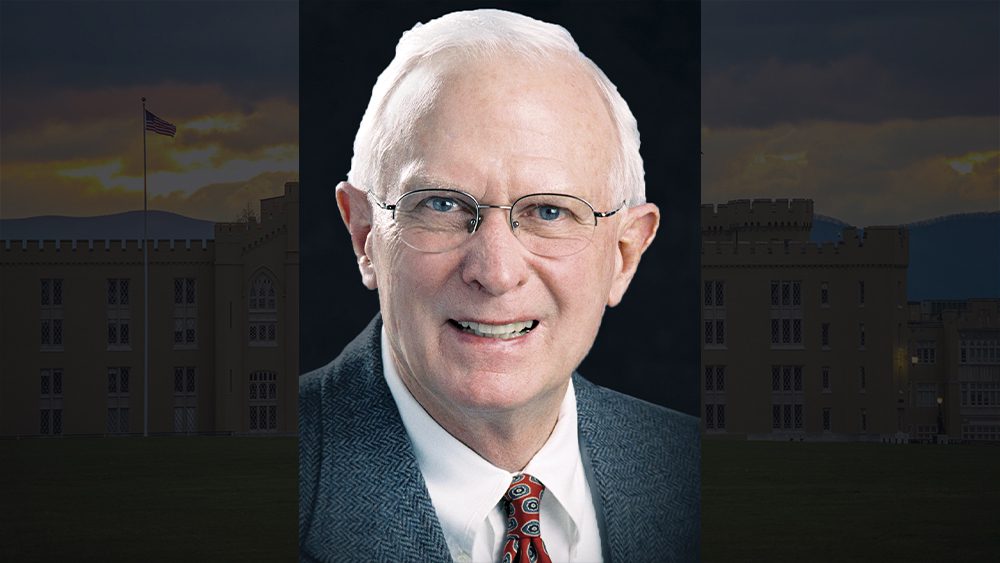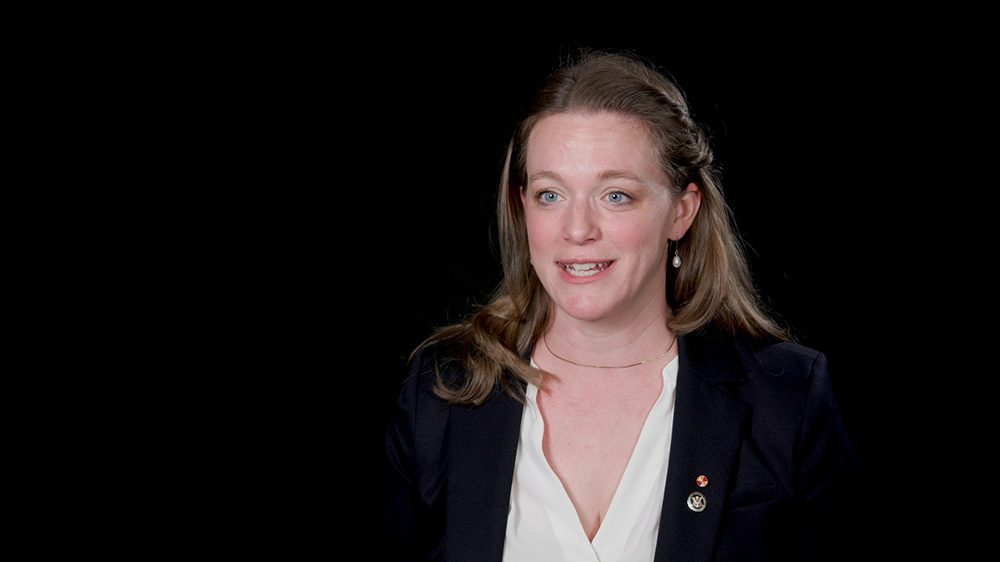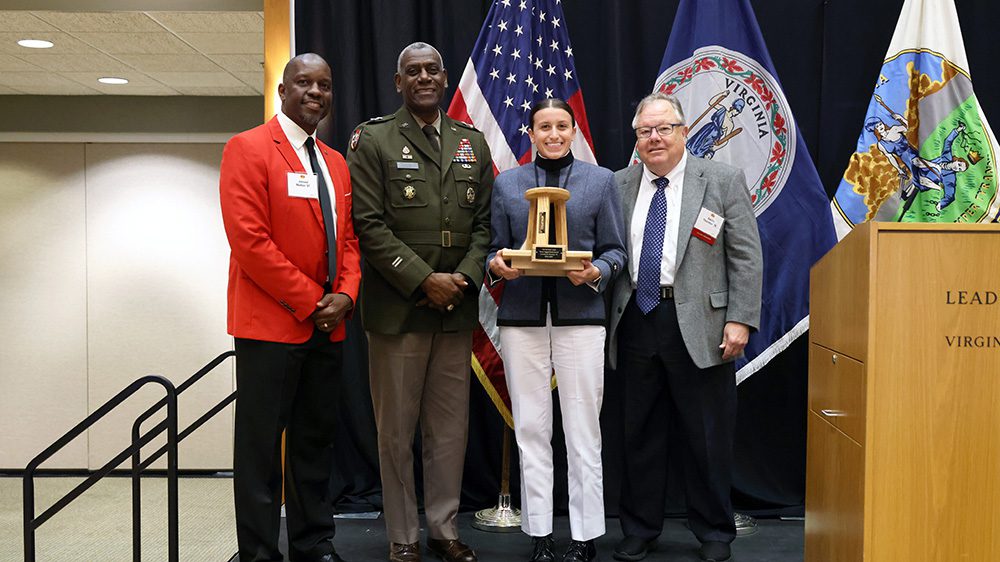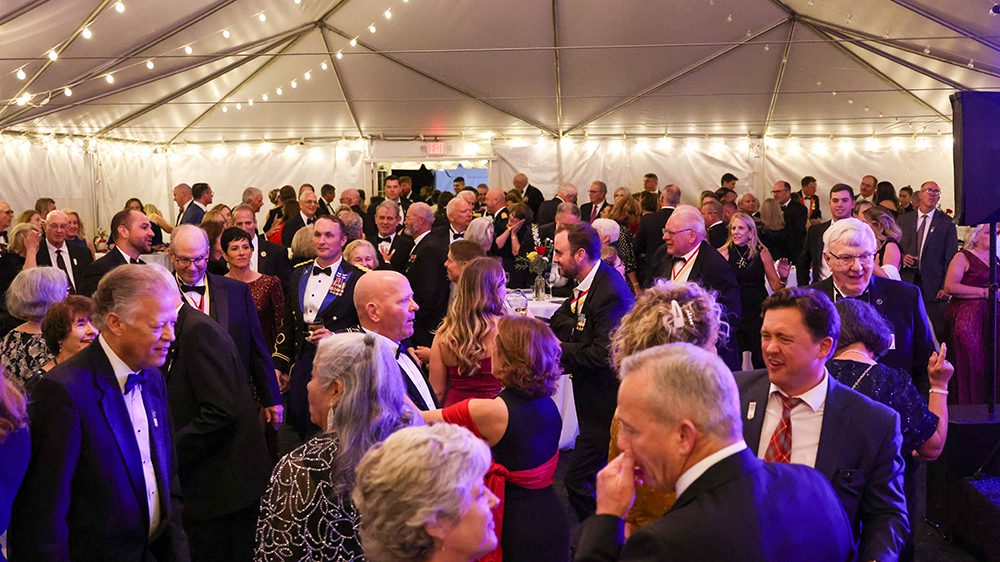This story began several years ago—almost 20, in fact—during the fundraising campaign, Reveille: A Call to Excel. In the campaign’s early days, Charles S. Luck III ’55, who was one of the campaign’s leaders, made a bequest of $1 million in support of the Institute.
When Luck died earlier this year, it fell to his two daughters and his son, Charles S. Luck IV ’83, to determine the next step. “When my father made the bequest, he meant the money to be unrestricted. But we felt this gift represented another part of Dad’s legacy at VMI; therefore, we wanted it to be special.”
With that in mind, the family got in touch with Meade B. King ’85, VMI Foundation and VMI Keydet Club chief operating officer, asking him to provide a record of the late Luck’s giving. “We were trying to discern what he was passionate about at VMI.” As it turned out, his giving covered just about everything at VMI—athletics, scholarships, and academics. So, the family asked King what the Institute’s current fundraising priorities—as Luck ’83 put it, “its forward-looking needs”—were.
After closely examining the list of needs that King provided, the family settled on supporting the Center for Leadership and Ethics—specifically, to endow the Leader-in-Residence Program. “We chose the CLE because we believed Dad would be drawn to it the most, and the Leader-in-Residence Program spoke to us the most.”
According to Col. Dave Gray, CLE director, the Leader-in-Residence Program is an important element of the center’s efforts to educate, engage, and inspire cadets, faculty, and staff to develop as leaders. “The Leader-in-Residence Program brings to post people of stature within their fields—such as the military, business, and government—for two weeks, which may be divided between fall and spring. While they interact primarily with the cadets through meetings, lunches, classes, and discussion groups and give the keynote address at the Superintendent’s Leadership Dinner, they also meet with the faculty and staff in various ways. In fact, one of the leaders insisted on visiting every activity at VMI.”
The leaders often arrive with experience in more than one field, said Gray. He cited as examples U.S. Army Gen. Dennis Via and U.S. Army Brig. Gen. Rebecca Halstead, who were at VMI in 2019 and 2015, respectively. “Both had served in the Army for decades, but when they arrived on post, they also had years of business experience under their belts. So, they could explain how their military experience translated into the civilian world, and that made them even more valuable to the on-post community.”
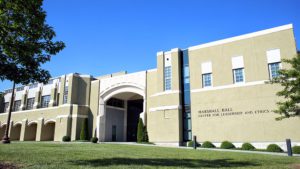
Twenty years ago, during Reveille: A Call to Excel, Charles S. Luck III ’55, who was one of the campaign’s leaders, made a bequest of $1 million in support of the Institute. After his passing in 2020, his children closely examined the list of the Institute’s needs. The family settled on supporting the Center for Leadership and Ethics, specifically, to endow the Leader-in-Residence Program at the CLE.
Asked what the Luck family’s gift meant to the Leader-in-Residence Program, Gray replied, “The program is the closest thing we have to a visiting professor in leadership, and this gift will, I hope, mean that we can bring the leaders back to VMI more often or for longer periods. That would be helpful because the leaders would get into the rhythms of VMI life, and everyone on post would have more opportunities to interact with them.”
As to the effect that the Luck family’s gift will have on cadets’ development as leaders, Luck ’83 said, “The Leader-in-Residence Program puts recognized leaders in front of cadets. These leaders can draw upon their experiences to describe how to champion a vision—[and] to bring people along in support of that vision—as well as what are the tools, skills, and behaviors of effective leaders. These encounters will help cadets determine how they can be more effective, purposeful, and transformative as leaders.”
Another aspect of the Luck family’s gift is that the program will be named after Gen. J.H. Binford Peay III ’62, VMI’s 14th superintendent. According to Luck ’83, there were many reasons for this decision. “First, my father and General Peay had a close relationship, and my father had immense respect for General Peay as a leader and a man—a respect that my entire family shares.”
It was the effect of Peay’s leadership during his time as superintendent, however, that convinced the Luck family to endow the program in his name. “Take a look at how far the Institute has come in so many ways over the past 17 years,” Luck said. “I cannot think of a single aspect of Institute life that has not significantly improved.”
“While a lot of people deserve credit for this amazing progress,” Luck continued, “the fact remains that it was General Peay who charted the course for VMI through his Vision 2039 and who provided the steadfast leadership that accomplished so much of it. Just think of how much influence these improvements have had—and will have—on the lives of thousands of young people. It’s just astounding.”
Finally, according to Luck, naming the program after Peay was a tribute to the sacrifices he made on VMI’s behalf. “Time is our most precious resource, so the most valuable gift anyone can give is that of his or her time. At a time in life when most people are thinking about—or starting—their retirement, General Peay dedicated more than a decade and a half to this school. That deserves recognition.”
Gray agrees that naming the program after Peay is fitting. “General Peay was focused on ensuring that VMI graduates have the tools necessary to be great leaders. He saw the CLE as something that enhances and reinforces what the cadets learn about leadership in barracks, on an athletic team—anywhere, really. He was deeply interested in the CLE’s work and was one of its most enthusiastic supporters.”
“When my father made the bequest, he meant the money to be unrestricted. But we felt this gift represented another part of Dad’s legacy at VMI; therefore, we wanted it to be special.”
Charles S. Luck IV ’83
Like all private support at VMI, the effects of the Luck family’s gift go beyond just its immediate effects on one program. “There is the financial effect in that, now that the program is endowed, we can devote the revenues we used to support it to strengthen other programs.
“There also is the inspiration that this gift will give to other potential donors to come forward to support other programs at the CLE.” There are many opportunities for those who want to make their philanthropy truly transformative, Gray said. “For example, cadet leadership enrichment opportunities, which provide cadets with the opportunity to travel to attend leadership conferences in the U.S. and abroad. A donor or donors could commit to funding it for several years or endow it permanently with a gift of $750,000.”
Other funding opportunities include its annual Leadership and Ethics Conference, the Cadet Ethics Program, the Courageous Leadership Speaker Program, and the Great Battles and Leaders Program. “At our peer institutions, an alumni class is often the sponsor of the annual Leadership and Ethics Conference, which also provides that class with the opportunity to have its members attend that conference each year as a sort of mini reunion. By funding these or any other programs at the CLE, a donor can have a profound and lasting effect on the lives of cadets by giving them the foundation of sound, honorable leadership,” explained Gray.
In closing, Luck ’83 said, “My family has long held that VMI’s mission is to build leaders. Our gift is meant to ensure the CLE’s long-term ability to play its important role in that mission.”
-

Scott Belliveau '83 Communications Officer - Executive Projects
The communications officer supports the strategy for all communications, including web content, public relations messages and collateral pieces in order to articulate and promote the mission of the VMI Alumni Agencies and promote philanthropy among varied constituencies.

